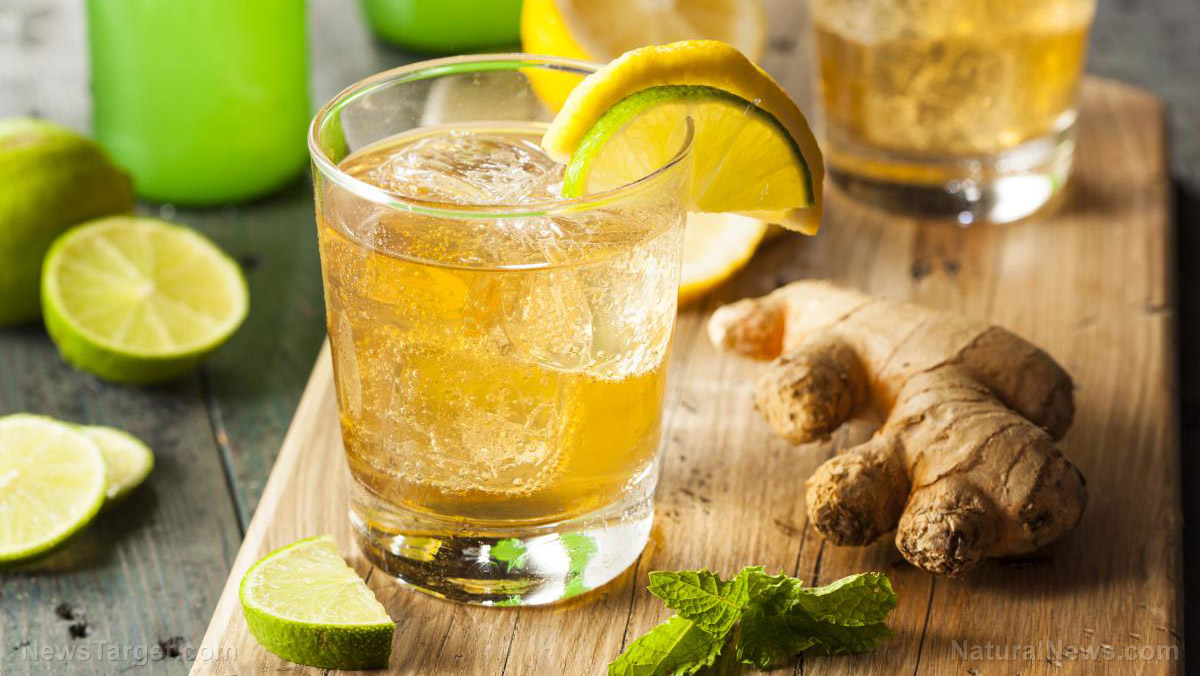
Advertisement
Ginger is hailed as both a superfood and a natural medicine. Natural healers from all over the world have made extensive use of ginger for treating all sorts of ailments, including nausea and arthritis pain.
Now, ginger is celebrated as a staple ingredient in kitchens worldwide. Brimming with important nutrients and powerful antioxidants, ginger is a spice to be reckoned with in terms of both flavor and health benefits. If you aren’t already using ginger in your recipes, then you’re sorely missing out.
Top health benefits of ginger
Check out some of the wonderful health benefits of ginger:
- Offers essential nutrients – Ginger is a nutrient powerhouse. It is rich in carbohydrates, dietary fiber and protein. It also contains high amounts of essential micronutrients, such as iron, potassium, magnesium, phosphorus and zinc. In terms of vitamins, ginger contains folate, niacin, riboflavin and vitamins B6 and C.
- Relieves nausea – Ginger has a long history of use as a natural remedy for things like nausea or motion sickness. Ginger has also been used to treat vomiting associated with morning sickness in pregnant women.
- Treats cold – Natural healers in Asia used ginger to treat the common cold or the flu. Research suggests that ginger’s beneficial effects are thanks to its antiviral properties.
- Improves digestion – Ginger helps relax your intestinal muscles and promotes the elimination of gas from your system. Ginger also stimulates your appetite while preparing your digestive system for food.
- Prevents stomach ulcers – A 2016 study found that ginger does a great job at inhibiting the growth of Helicobacter pylori (H. pylori), a type of bacteria that can infect your stomach and cause ulcers.
- Helps relieve arthritis pain – Ginger contains a powerful compound called gingerol that can reduce inflammation. Because of gingerol, ginger can relieve pain and help with inflammatory conditions like rheumatoid arthritis.
- Protects your liver – Ginger helps protect your liver from damage caused by inflammation. Ginger can prevent fat buildup in your liver as well.
- Helps control diabetes – Ginger helps control your blood sugar levels. It can also improve insulin sensitivity. Insulin resistance and high blood sugar levels are hallmarks of Type 2 diabetes.
- Boosts cognitive functions – Recent studies suggest that ginger can boost cognitive function in both middle-aged and older adults, thanks to the potent antioxidants in it. These compounds help protect the brain from inflammation, which is linked to diseases like Alzheimer’s and Parkinson’s.
- Supports healthy heart function – Ginger can keep your heart in good shape by lowering bad cholesterol levels. Bad cholesterol can build up along your arteries and reduce blood flow. Poor blood flow to your heart can cause complications like chest pain, stroke and heart attack.
Recipe for fresh ginger tea
One way you can enjoy the many impressive benefits of ginger is by sipping hot ginger tea. Making ginger tea is a simple process that takes no more than 30 minutes. Here’s an easy recipe you can try:
Ingredients for 2 servings:
- 4 cups water
- 2 tablespoons fresh ginger root
- 1 tablespoon organic honey
- 1 tablespoon lime juice
Preparation:
- Peel the ginger root and slice it thinly.
- Add water and sliced ginger to a pot. Bring to a boil for 10 minutes. For a stronger tea, boil ginger for at least 20 minutes or more.
- Remove from heat. Strain to remove the ginger slices. Stir in lime juice and honey. Serve hot.
Notes:
- The secret to a good cup of ginger tea is lots of fresh ginger simmered for a long time. You can’t really overdo it, so feel free to use as much ginger as you want and keep it simmering for as long as you want.
- For easier prep, make a big batch and store the tea in a sealed container in the refrigerator. You can drink it cold or heat the tea one cup at a time for easier consumption throughout the week.
- You might notice sediments settling at the bottom of the container when storing ginger tea. This is totally normal. But if you want to avoid those sediments, strain your tea through a layer of cheesecloth.
- Leave out the honey and lime juice if you’d rather enjoy ginger tea by itself.
- You can use lemon juice instead of lime juice. Fresh is best for either.
- Peeling ginger root before use isn’t really necessary. Some people peel older roots and leave younger ones intact. If you do choose to leave the peel on, rinse the root thoroughly to remove any dirt or debris.
Ginger is a beloved kitchen staple that boasts lots of health benefits, such as better digestion and a lower risk of chronic diseases like heart disease and diabetes. Experience these benefits when you incorporate ginger into your diet.
Sources:
Advertisements







